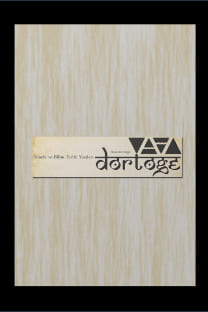MANTIKÇI POZİTİVİSTLERDE SINIRLANDIRMA AYRACI OLARAK DOĞRULANABİLİRLİK
Yirminci yüzyıl bilim felsefesinin en önemli problemlerinden biri, şüphesiz sınırlandırma ayracı problemidir. Diğer bir ifadeyle bilim olanla - bilim olmayanı belirleme çabasıdır. Bu soruna ilişkin en makul çözümlerden birini Mantıkçı Pozitivistler öne sürmüştür. Bu düşünürlerin öne sürdükleri doğrulanabilirlik ilkesi bilim olanla – bilim olmayanı belirlediği gibi aynı zamanda günümüz bilim anlayışını da oluşturmaktadır. Bu nedenle günümüzde bilimin niteliğini ve doğasını anlamak, bir anlamda doğrulanabilirlik kavramını anlamayı zorunlu kılmıştır. Bu çalışmanın amacı Mantıkçı Pozitivistler tarafından öne sürülen doğrulanabilirlik kavramının niteliğini ve doğasını anlamaktır. Ayrıca bu kavram ile nasıl bir bilim tasarımı oluşturdukları çalışmanın hedefl eri arasında olacaktır. Bu maksatla başta doğrulanabilirlik kavramı olmak üzere, mantıksal sentaks, protokol önermeler ve onaylama kavramları birbirleri ile bağlantılı bir şekilde analiz edilecektir
One of the most important problems of the twentieth- century philosophy of science is no doubt demarcation criterion problem. In other words, what is science – what is nonscience, is attempt to determine. Logical positivism put forward one of the reasonable solution for this problem. Verifi ability principle put forward by these thinkers, not only what is science – what is nonscience has determined but also constituted the understanding of contemprorary science. For this reason, today to understand characteristic and nature of science, in a sense make it obligatory to understand the concept of verifi ability. The aim of this study is to understand characteristic and nature of the concept of verifi ability that put forward by logicans positivist. In additon, how do they constitute a science imagination with this concept, will be among the targets of this paper. For this purpose, especially the concept of verifi ability, logical syntax, protocol sentence and confi rmation concepts, will be analyzed in connection with each other
___
Carnap, Rudolf. (1949). “Truth and Confi rmation”, Herbert Feigl and WılfrıdSellars. (Eds). Reading in Philosophıcal Analysıs içinde. (s.119-127). Appleton
Century- Crofts New York.
Carnap, Rudolf. (1967). The Logical Syntax of Language, Trans. by Amethe Smeaton (Countess Von Zeppelin), Routledge& Kegan Paul, London.
Carnap , Rudolf. (1987). “On Protocol Sentence”, Trans. by R. Creath and R. Nollan, Nous, vol. 21, No.4, USA.
Carnap, Rudolf. (1995). The Unity of Science, Thoemmess Press, England.
Carnap, Rudolf. (1996). Philosophy and Logical Syntax, Thoemmes Press, London.
Carnap, Rudolf. (1997). “Phılosophıcal Problems”. Paul Arthur Schilpp (Ed.). The Philosophy of Rudolf Carnap içinde. The Library of Living Philosopher. Inc, USA.
Chapman, Siobhan. (2008). Language and Empricism, (After The Vienna Circle) Palgrave Macmillan Press, New York.
Enoch, Stumpf, Samuel. (1994). Philosophy, History/Problems, Mcgraw-Hill. Inc, New York.
Feigl, Herbert. (Ed.) (1953). Reading in Philosophy of Science,, Appleton- Century- Crofts, New York.
Feyerabend, Paul. (1999). Yönteme Karşı, Çev: Ertuğrul Başer, Ayrıntı Yayınları, İstanbul.
Hızır, Nusret. (2007). Felsefe Yazıları Çağdaş Yayınlar, İstanbul.
Rossi, J.G. (2008). Analitik Felsefe, Çev: Atakan Altınörs, Say Yayınları, İstanbul.
Schlick, M. (1981). “Meaning and Verifi cation”. Oswald Hanfl ing (Ed.). Essential Readings in Logical Posıtıvısm içinde. (s.32-45). Basil Blackwell Publisher, England.
Ural, Şafak. (2006). Pozitivist Felsefe, Say Yayınları, İstanbul.
Tepe, Harun. (1990). Ontolojik Yaklaşım Açısından R. Carnap ve N. Hartmann’da Bilgi ve Doğruluk Sorunu, Hacettepe Üniversitesi (Yayımlanmamış Doktora Tezi), Ankara.
Waismann, Friedrich. (1981) “Meaning and Verifi cation”. Oswald Hanfl ing (Ed.). Essential Readings in Logical Posıtıvısm içinde. (s.27-32) Basil Blackwell Publisher, England.
Wittgeinstein, Ludvig. (2006). Tractatus Logıco-Phılosophıcus, Çev: Oruç Aruoba,
Metis Yayınları, İstanbul.
- ISSN: 2146-7064
- Yayın Aralığı: Yılda 2 Sayı
- Başlangıç: 2012
- Yayıncı: Nobel Akademik Yayıncılık
Sayıdaki Diğer Makaleler
LEONARDO DA VİNCİ: BİR RÖNESANS DÂHİSİ
Melek Dosay GÖKDOĞAN, Bedia YAYLA, Leonardo Da VİNCİ
Constantinos MARİTSAS, For LIFE
MANTIKÇI POZİTİVİSTLERDE SINIRLANDIRMA AYRACI OLARAK DOĞRULANABİLİRLİK
BİR RÖNESANS MÜHENDİSİ: LEONARDO DA VINCI
MARX-SIZ BİR MARX: DERRIDA’NIN YAPISÖKÜMÜNÜN MARX ÜZERİNDEN BİR İZLENCESİ
MİTOS TEMELLİ RUH TASARIMININ BİR ÖRNEĞİ OLARAK HOMEROS’TA PSYKHE KAVRAMI
LEONARDO DA VİNCİ’NİN OPTİK ÇALIŞMALARI
MİTOS TEMELLİ RUH TASARIMININ BİR ÖRNEĞİ OLARAK HOMEROS’TA PSYKHE KAVRAMI
